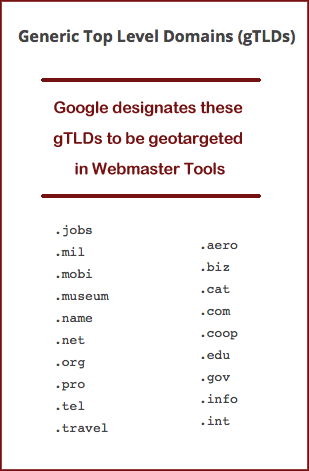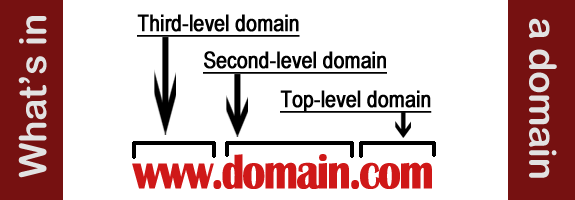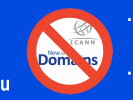Both business managers and common consumers are confused by the mess ICANN has created, a mess website managers must confront when clients ask the same question over and over again when starting a new website – Should I register com and net?
Because there are so many options in registering domain names, the answer to Should I register com and net is nearly always an emphatic NO. Don’t waste your money or time. By sticking with a .com top-level domain name, you’ll be more likely to avoid the mess that has resulted from years of unregulated domain name registrations.
Architelos reports that 99% of the 276 million domain names in the world’s registries are used by cyber-squatters for malware, phishing or spam. “Total abusive domains listed increased 50% from December 2012 through May 2014,” according their most recent domain report.
The Internet Corporation for Assigned Names and Numbers (ICANN) missed the boat early on by not properly regulating top-level domain (TLD) registrations. While they took the position in 1985 that the www should be more wild wild web than world wide web, 29 years later there are more than 200 top level domains that are mostly being abused.
Search engines prefer dot-coms
 Libertarians may celebrate the hands-off approach for growing the biggest innovation since the invention of the telegraph, but many others are suspicious of the proliferation of TLDs which seem to have no relation to the websites they are visiting. ICANN manages a registry of generic top-level domains (gTLD) and country code top-level domains (ccTLD). Nonetheless, it’s up to the search engines to decide who will see them. Google and other search engines prove the inanity of so many TLDs by ignoring websites not using the commonly accepted dot-coms. While Google tells website managers that they accept any of the specifically listed gTLDs on their geotargetable domain list, many SEO experts believe otherwise. The fact of the matter is that using a dot-com is a safe bet while the others are considered second-class.
Libertarians may celebrate the hands-off approach for growing the biggest innovation since the invention of the telegraph, but many others are suspicious of the proliferation of TLDs which seem to have no relation to the websites they are visiting. ICANN manages a registry of generic top-level domains (gTLD) and country code top-level domains (ccTLD). Nonetheless, it’s up to the search engines to decide who will see them. Google and other search engines prove the inanity of so many TLDs by ignoring websites not using the commonly accepted dot-coms. While Google tells website managers that they accept any of the specifically listed gTLDs on their geotargetable domain list, many SEO experts believe otherwise. The fact of the matter is that using a dot-com is a safe bet while the others are considered second-class.
After all, any for-profit business can register a .org domain name. Additionally, many first-time website managers will choose a country level domain without realizing it will hold them back on search engines. For instance, .tv actually stands for the island atoll country of Tuvalu.
Missed opportunities
It could have been different, and it’s not too late to fix the problems with managing who registers which top-level domains (TLDs). But opportunities to fix the problem continue to go past. After vociferous opposition from both politicians and conservative groups in the United States, the .XXX proposal to designate porn-only was defeated in 2005 – finally something both the porn business and the Family Research Council (FRC) agreed on.
What’s more frustrating is the fact that ICANN is already allowing sponsored top-level domains (sTLD) for addresses such as .mil, .edu, and .gov., but seem to be mismanaging the enforcement of how these sTLDs are made available. Now they want to open up more names for business (i.e., .coke). While it’s nearly impossible to register a .gov, for instance, getting an .XXX is easy. Their confederacy will undoubtedly include jackasses who will mismanage names so that the abuse will persist. That’s because a sponsored TLD can distribute the name any way the sponsor sees fit, which means the sTLD is a monopolistic program without any regulations or rules about how how they distribute the names.
Why a .com works
So, the next time someone asks “Should I register com and net?” ask the client if he or she can think of a popular website using the .net top-level domain? Self-regulation is currently weeding out those TLDs that are not dot-coms because consumers and search engines are fed up with the lack of structure as the exploding business of arbitrary domain names goes wild. Who isn’t fed up with the likely hood of running into a malicious or cyber-squatting agenda inherent with non dot-com names?
In conclusion, most website managers would be wise to avoid the pitfalls associated with using anything other than dot-coms for their websites, precisely because it is the marketplace where they want to be. While it may be true the lack of register-able dot-com names makes it difficult to identify a new business uniquely, a creative domain name with an implied reference to that business is better than a top-level domain name that’s being ignored by Google.


